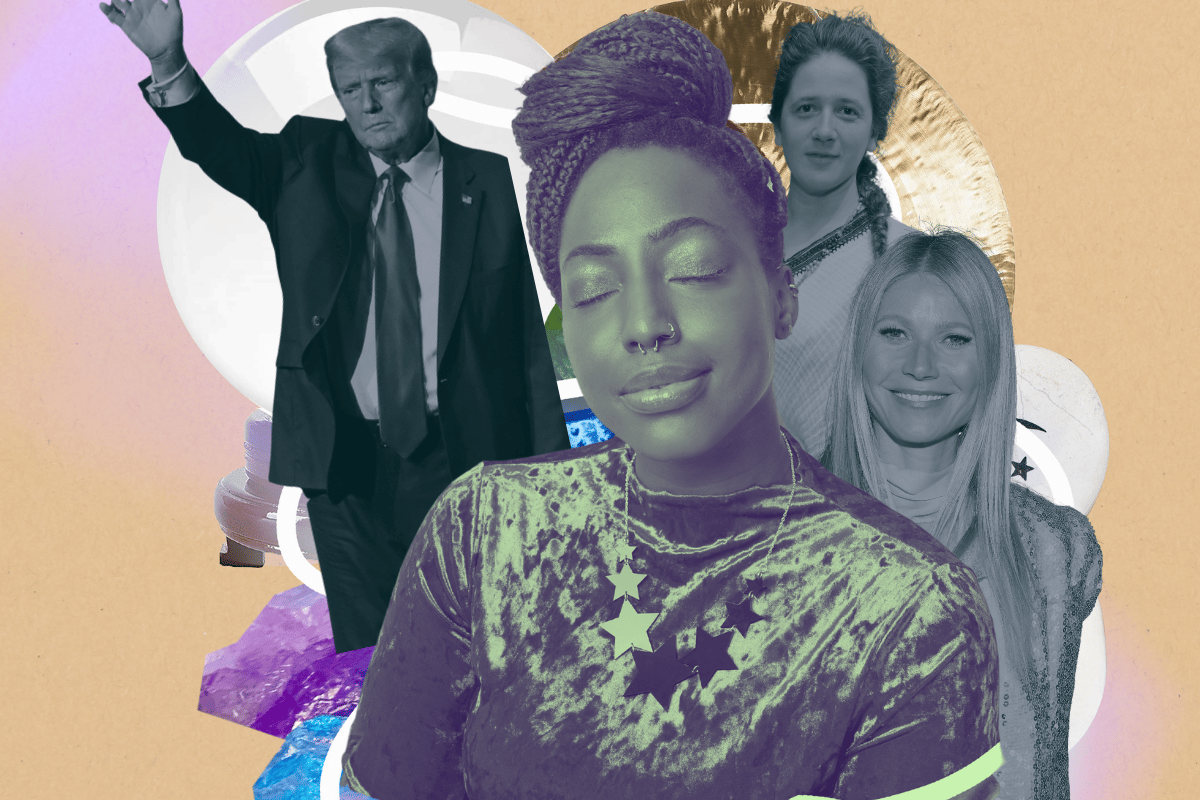
Last Saturday morning, post-yoga, I was chatting with an old client at a studio where I once taught workout classes. It had been lovely catching up... until she said something that stopped me in my tracks.
We were talking about how rampant influenza and COVID-19 had been this winter and after flashing her my freshly flu-jabbed shoulder, she suddenly came out with, "Oh I’m anti all that — it’s terrible all the toxins we put in our bodies."
Watch a Wellness blogger apologises for calling cancer "good" for the body. Post continues after the video.
An instructor popped her head around the corner to contribute, "The one time I got the flu shot, I got the flu!" And several other clients nodded in agreement.
In many spaces, this is as far as it goes — a difference in opinion when it comes to conventional medicine. However, looking back at the pandemic, it's almost impossible to ignore how the pursuit of wellness inadvertently opened us up to far-right propaganda.
And it hasn't really gone away.
Despite the fact Donald Trump is no longer the US president, and life has returned to something resembling ‘normal’, conspiracy theories still abound in wellness spaces. And if we’re not on the lookout, it can be a pretty slippery slope from inner peace to full-blown conspiracy.
Because, as many people would agree, there’s just something special about finding ‘your people’. Whether it’s a fitness program, a meditation class or an online alternative wellness group, finding belonging in a community is instrumental to our well-being.

Top Comments